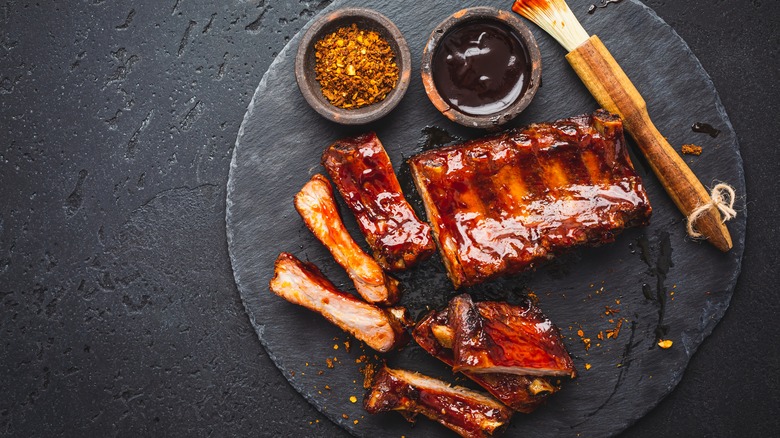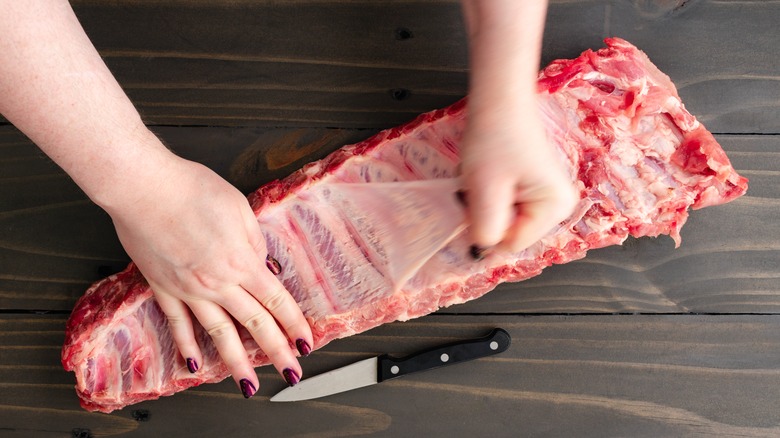The Easiest Way To Remove The Silver Skin Off Barbecue Ribs
Have you ever taken a bite out of a seemingly juicy, tender, deliciously glazed rib and ended up with a mouthful of chewy, plasticky, unidentified something in your mouth? This intruder is a layer of tissue called the silver skin, also known as the peritoneum. Removing it is a vital tip for cooking ribs to avoid giving your guests the same unfortunate experience, and fortunately, it is super simple to do.
Drying off the whole slab of ribs is a good first step, as removing the silver skin will be more challenging if the meat is slippery. Flip over the rack so that the bony, concave side is facing up. You will see the sheen of whitish, translucent membrane covering the entire back of the slab. Now, you could just try and peel up a corner of the skin, but that can get frustrating fast. Instead, take advantage of this TikTok hack that uses a handy-dandy fork.
@our.family.journey Rib secret! #bbq #sendthistoyourdad
As you slide the tines between two bones on the narrow side of the rack, the silver skin will catch between the prongs, and you can easily pinch it using a paper or kitchen towel. While you can also try sliding the flat edge of a knife under the membrane, it is more challenging to do. Plus, you run the risk of accidentally cutting through the silver skin, which means you won't be able to pull it off in one fell swoop.
Removing the silver skin improves both texture and flavor
Tempted to just cook your ribs and remove the silver skin afterwards? Think again — the peritoneum actually gets tougher as it cooks, even if you plan on throwing your ribs in the slow cooker or smoking them low-and-slow for several hours. Baby back, spare, and St. Louis-cut pork ribs will all need the silver skin removed, as will beef back ribs. When you take this step, not only are you making your future barbecue easier to eat, but you're also enhancing its flavor.
The silver skin basically acts as a barrier between the meat and any seasonings you might add. Salt and pepper, dry rub spices, and barbecue sauce will not be able to pass through that tough layer. When you consider the fact that the peritoneum covers an entire side of the rack of ribs, that's a huge missed flavor opportunity. It also limits the amount of smoke penetration. If you're taking the time to cook the ribs in an electric smoker or pellet grill, you definitely want to make sure that all that effort will be reflected in the final taste.


